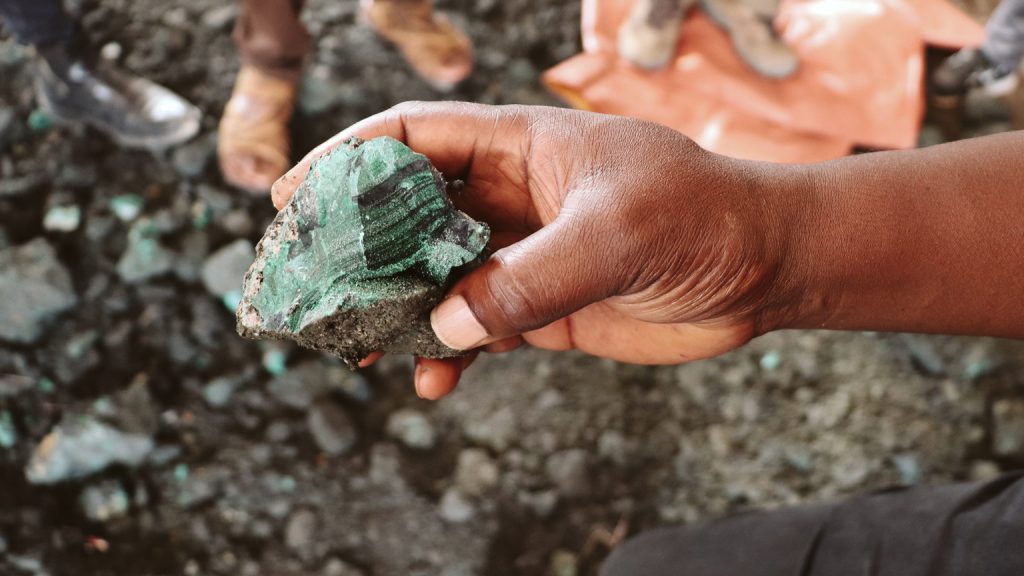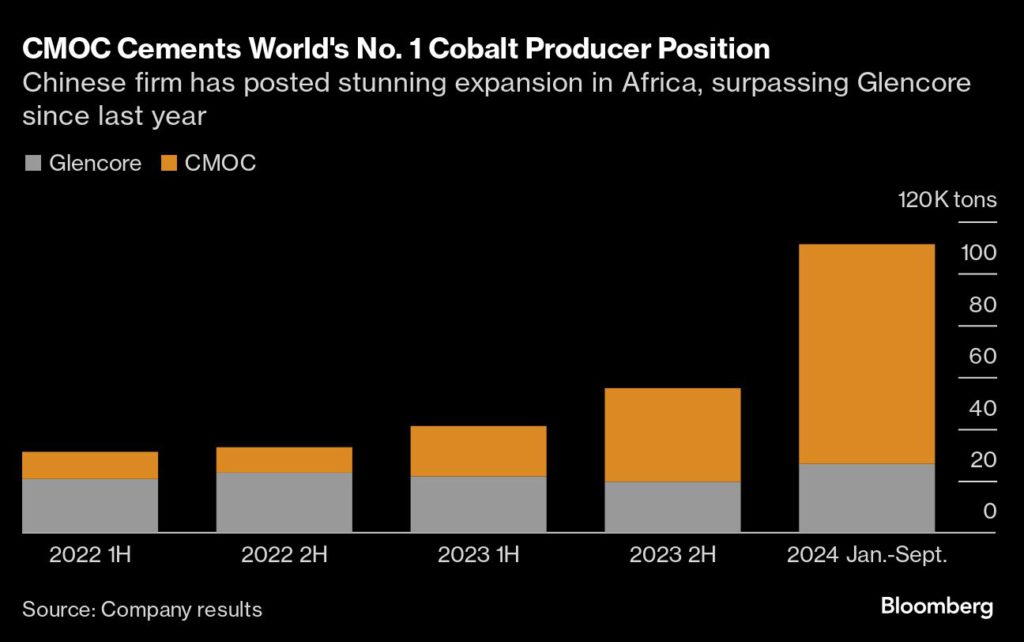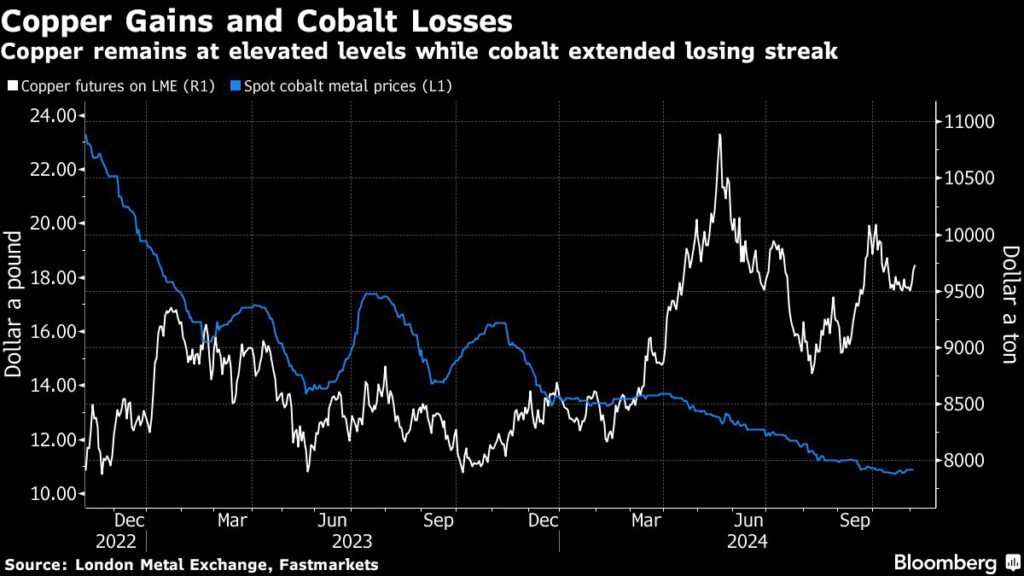
The world’s No. 1 cobalt miner is sounding the alarm over the shrinking role of the metal in electric vehicle batteries.
Chinese company CMOC Group Ltd., which has been churning out cobalt much faster than rivals like Glencore Plc, said the importance of the raw material in the energy transition is declining rapidly.
The adoption of cobalt-free lithium iron phosphate, or LFP, batteries has gained momentum in recent years, due to them being cheaper to manufacture. The proportion of EV batteries in China containing cobalt will drop to 31% in 2024, from 44% two years ago, according to consultancy CRU Group.
“We predict that EV batteries will never return to the era that relies on cobalt,” Zhou Xing, a spokesman for CMOC, said in an emailed response to questions. “Cobalt is far less important than imagined” and the proportion of batteries containing the metal may eventually drop to less than a tenth, he said.

CMOC’s bearish view of the market comes amid a glut of the metal that’s been largely created by the Chinese firm’s expansion of two huge copper-cobalt mines in the Democratic Republic of Congo. It smashed through its full-year output target in the first nine months of the year, helping to push down cobalt prices to the lowest level since 2016.
While the Chinese miner has been ramping up production, Glencore, which CMOC overtook as the biggest cobalt supplier last year, has cut output at its Mutanda asset in DRC.
Cobalt, which is also used in aerospace alloys and in the petrochemical industry, is often extracted as a by-product of digging up copper, and CMOC has been eager to mine more of the red metal as it’s bullish on it in the longer term. Hoarding cobalt to stem a decline in prices would be pricey due to the increase in expenses, such as for warehousing, according to Zhou.

“The global cobalt outlook looks bearish for next year: new, cheap metal refining capacity has come online in China and Indonesia,” said Thomas Matthews, battery materials analyst at CRU. Prices should be lower on average next year and will take a few years to recover, he said.
CMOC has been forging closer ties with Contemporary Amperex Technology Co. Ltd., the world’s largest battery manufacturer that also became its second-largest shareholder in 2022. CATL has been buying cobalt from CMOC, helping it to secure orders in an oversupplied market.
“A secure and stable supply of cobalt enables us to better meet customer demand,” a CATL spokesman said in an emailed response to questions. Investing in upstream suppliers was a way “to ensure supply chain security,” however the company believes the market share of LFP batteries will continue to rise, he said.
But CMOC is starting to feel the pinch of lower cobalt prices, despite ramping up output aggressively and saying in August it saw the supply and demand reaching “a good balance” in two years.
“We are bothered by the fact that too much cobalt by-product has caused the prices to fall, and the company’s cobalt profits have therefore shrunk significantly,” Zhou said.
(By Annie Lee)
Comments